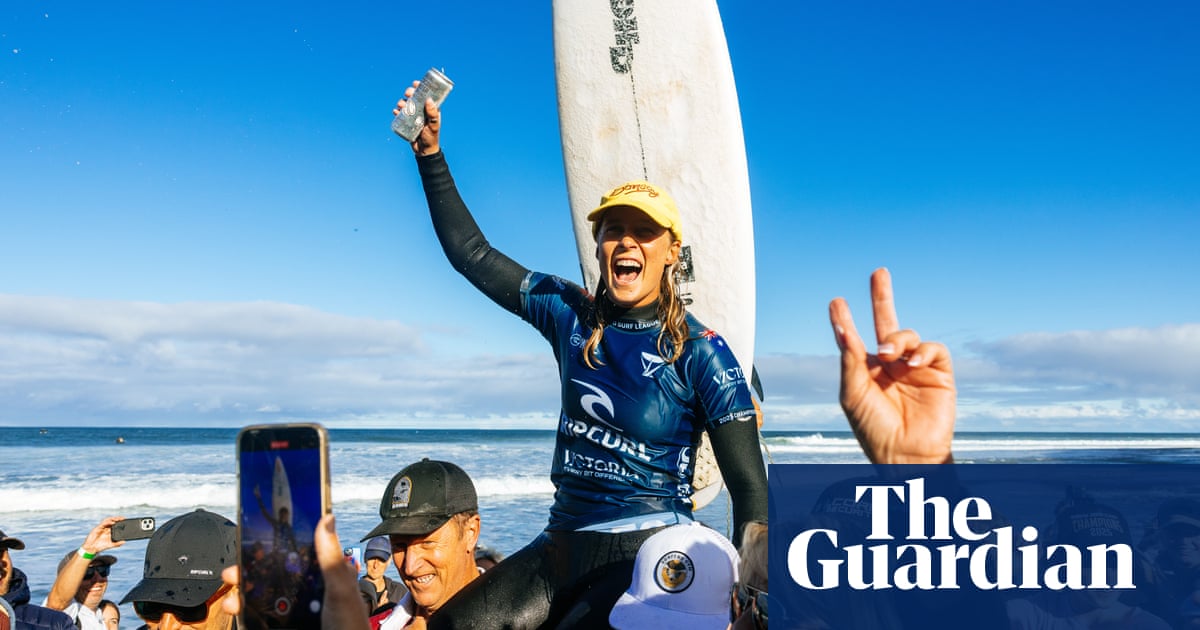Resurgent Australian Isabella Nichols has claimed the biggest victory of her surfing career by downing young Brazilian star Luana Silva in the women’s final at Bells Beach.
Earlier this month, Nichols made the agonising choice not to attend her twin sister’s wedding and shoot for surfing glory instead in El Salvador. The 27-year-old had reckoned tearfully that it had been the biggest sacrifice of her life.
She missed out on a fairytale at Punta Roca, defeating Australia’s current rising star Molly Picklum in the semi-finals only to be defeated narrowly in the final, 14.33-11.74 by Gabriela Bryan, the 23-year-old Hawaiian.
But the former world junior champ has now gone one better at Bells, throwing down the gauntlet with a big early score of 8.33 points and backing it up to win 16.26 points to 12.67 at the famous Victorian break.
“The process for this win has honestly been a 15-year process,” Nichols said. “I’ve been coming here since I was 15 years old. All the trips down here, three times a year to come down and work on my technique and it’s all paid off.
“To have a bell, honestly this does not feel real. I’m speechless.”
Nichols only made her way back on to the elite Champions Tour (CT) this year and her only other victory on the CT came three years ago at the Margaret River Pro.
The Hawaiian-born Silva, 20, won the world junior title this year, the same event that Nichols saluted at back in 2016. Now Nichols, who was on the cusp of quitting the sport in 2023 to focus on engineering studies and her goal of building wave pools, has her revenge.
Earlier on Sunday, Nichols took down her celebrated countrywoman and two-time world champ Tyler Wright in the semis.
The men’s final later on Sunday will pit Australia’s Paris Olympics silver medallist Jack Robinson against Japan’s Kanoa Igarashi.
The 27-year-old Robinson left it late before sneaking past American Griffin Colapinto in the second semi.
Sign up toAustralia Sport
Get a daily roundup of the latest sports news, features and comment from our Australian sports desk
after newsletter promotion
Robinson’s final 7.17-point wave saw him edge ahead 14.67-14.33.
The Aussie started his day with a 15.94-14.57 victory over American Jake Marshall in the last quarter-final.
After a thrilling run through the event, Australian wildcard Morgan Cibilic had no luck in a low-scoring semi-final loss to Igarashi, where decent-sized waves were at a premium.
Cibilic only caught his second wave of the heat in the final minute and fell, gifting victory to Igarashi, 10.27 points to 5.37.
“It is what is at the end of the day - you can’t argue with the ocean,” said a philosophical Cibilic.
“But it is pretty brutal.”
